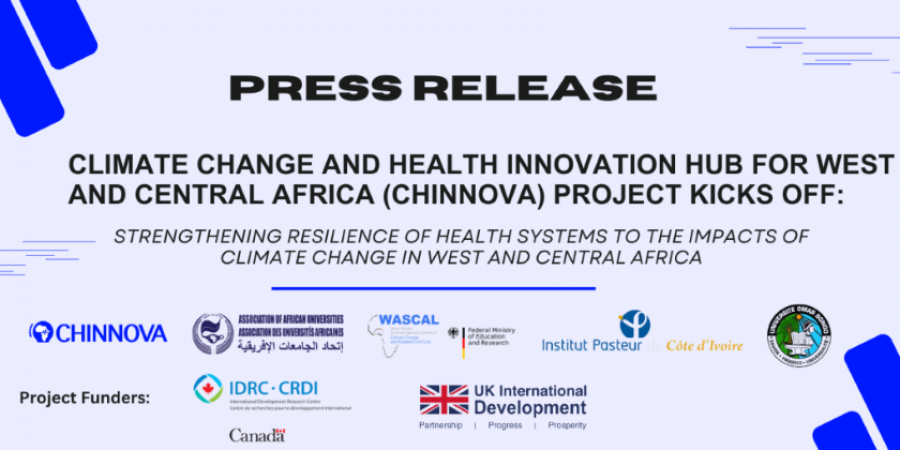
A groundbreaking initiative aimed at tackling the escalating impact of climate change on health systems in West and Central Africa has been launched, with C$4.8 million (US$3.3 million) in funding. The Climate Change and Health Innovation Hub for West and Central Africa (CHINNOVA) seeks to enhance regional resilience through cutting-edge research, robust data collection, and strategic policy engagement.
The initiative, which will run from 2025 to 2028, is led by the Association of African Universities (AAU) in collaboration with key partners such as the West African Science Service Centre on Climate Change and Adapted Land Use (WASCAL), Institut Pasteur de la Côte d’Ivoire, and the Université Omar Bongo in Gabon. The project is funded by Canada’s International Development Research Centre (IDRC) and the UK Foreign Commonwealth Development Office.
CHINNOVA aims to address the rising threats of climate change on public health in the region, particularly focusing on the spread of vector-borne diseases, heat-related illnesses, and disruptions to healthcare infrastructure. The initiative is structured as a ‘network of networks,’ bringing together interdisciplinary experts to collaborate and develop region-specific solutions that can mitigate the health risks of climate change.
One of the key features of CHINNOVA is its emphasis on improving the availability and use of climate and health data. The project plans to establish a comprehensive network for collecting, analyzing, and applying climate-related health data. This will enable governments and policymakers to make informed decisions based on real-time, localized information, thus improving their capacity to respond to emerging health threats. Additionally, CHINNOVA will fund up to 10 innovative research projects through an open call for proposals, providing technical and methodological support to the selected researchers.
Professor Olusola Bandele Oyewole, Secretary General of the AAU, highlighted the project's focus on inclusivity. “CHINNOVA prioritizes the needs of vulnerable populations, including displaced persons, refugees, and indigenous communities. By fostering transdisciplinary partnerships, we aim to develop knowledge-driven solutions that address the challenges facing academia, government, and civil society,” he said.
As climate vulnerability continues to intersect with public health crises, CHINNOVA’s approach will integrate diverse datasets from meteorology, environmental science, epidemiology, and social sciences. This interdisciplinary approach will enhance the ability to predict climate-sensitive diseases and improve response strategies for health systems in the region.
Dr. Andre Toure Offianan, Director of Research at Institut Pasteur de la Côte d’Ivoire, emphasized the project’s policy-driving role. “Climate change is straining healthcare systems by increasing disease prevalence and disrupting food security. Through CHINNOVA, we aim to generate robust evidence to inform policies that strengthen health system resilience and address the needs of at-risk populations,” he noted.
The launch of CHINNOVA represents a critical step in West and Central Africa’s efforts to build climate-adaptive health systems. By fostering collaboration among researchers, policymakers, and health professionals, the initiative is expected to drive sustainable changes that will protect the region’s most vulnerable communities from the increasing health risks associated with climate change.
Article by RB Correspodent
Photo/Google

Comment